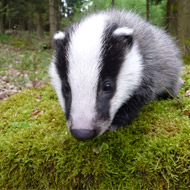
Researchers conduct largest simulation to date
The extent to which badgers cause TB in cattle is under speculation following new research.
A study carried out from Queen Mary University of London quantifies the relationship between the two animals.
In the largest simulation to date of the numbers of cattle and badgers infected with TB, the study found that the route of infection for cattle is from other cattle rather than from other species.
The research, published in the journal Stochastic Environmental Research and Risk Assessment, shows that reciprocally, badgers are mainly infected by other infected badgers.
“If badgers are causing TB in cattle, we would see a similar pattern of infection in both species, however our analysis reveals that this isn’t the case and could have implications for a strategy to vaccinate badgers, as an efficient control strategy if policymakers were to pursue this option,” said lead author Dr Aristides Moustakas.
In the study, the researchers used a mathematical model that combined over a million cattle and 50,000 badgers. The model looked at the animals over different scenarios to learn how the movement of one species affects TB transmission in the other.
The team say their findings reflect the movements of the animals. For example, cattle move greater distances within their grounds, or they can be sold to farms further afield. So it is not unexpected that cattle with TB can be found at unrelated and geographically widespread areas.
They recommend that an efficient way to vaccinate badgers might be to follow the spatial pattern of TB infections. For example by identifying the hotspots where the disease is concentrated.
This targeted approach would save labour and costs to control the spread of the disease, they conclude.



 The Animal and Plant Health Agency (APHA) has updated its online reporting service for dead wild birds.
The Animal and Plant Health Agency (APHA) has updated its online reporting service for dead wild birds.